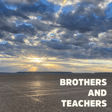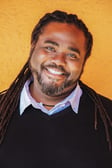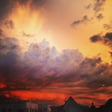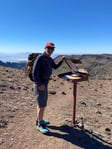
E14 / Wayfinding with Kim Stanley Robinson
Today I'm speaking with Kim Stanley Robinson, a true legend of a writer, and also as an advocate for better stewardship of planet Earth and for sustainable cohabitation with all the species that inhabit this unique gem of a planet. Stan has published more than twenty books and has received great recognition for both his creative work, his advocacy, and although he's quick to qualify it as the work of a novelist, the fact is that he has made quite a mark with his science as well.
Stan and I met through the Long Now Foundation here in San Francisco and reconnected through our mutual love of the High Sierra, in particular through the shared experience of independently coming across Paiute obsidian knapping sites simply by following our intuition in looking for good places to rest while out hiking.
Especially since I'm working on building a third career as a writer, I value very highly Stan's life experience as a working artist who's met with such success—and also as someone who embodies warmth, curiosity, irreverence, adventure, poise, truth, and openness, just to name a few of the values that I see in him.
As you listen, you might scan the questions at the bottom of the show notes, or just consider this: what is your relationship with the natural world? How does it feel to be in nature and to be part of nature? And how does that inform you in your daily life, and as you look towards the future?
In addition to all of my writing and podcast episodes, paid subscribers get super cool DECIDE NOTHING pins, access to occasional bonus and AMA posts and chats—and the opportunity to order a copy of my book when it comes out for just the cost of shipping. If you’re enjoying my writing and podcast and would like to see more episodes like this one, please consider becoming a paying subscriber.
Show Notes
The Cardboard Set Problem — “science fiction has a standing weakness in formal terms in that you know that it's made up. It's set in the future. It's maybe on another planet. When you're reading, you know it's made up.”
Imagining Mars based on the High Sierra and the American West.
How he became a writer.
Poetry, and how “if you're interested in writing poetry, then paying attention to the moments that might turn into a poem is one of the most important things you have to do.”
On formal training as a creative writer — “I don't think you can do much to teach writing of fiction. I don't believe in the MFA.”
Geography — “It's one of the main projects we have in civilization today, is to do better at geographical comprehension and expertise.”
A story about getting “locally lost” in the Palisades Basin. “There’s expert overconfidence and then there's just ordinary overconfidence.”
The “deep pleasure” of wayfinding—and how, unlike in the mountains, “you can’t backtrack” with life errors. “Experience often teaches you stuff that is no longer relevant.”
His avoidance of risk, perhaps due to “being easily scared, so that the risk is not felt as a stimulant…” but more to the very personal experience of seeing a friend die of leukemia at age fifteen, and how that gave him a “hunger” to live. He used to judge climbers for something like an inability to appreciate the subtle, but has since come to see that his judgment was “very inappropriate,” much like judging someone for their sexual preferences. He had to re-educate himself by paying more attention.
Making a devotional practice of “being a dog”—and the spiritual nature of sport.
The erotic charge of being in the mountains, having a relationship, even a “love story” with a place, and how “to love the inhuman” is strange and worth exploring.
How the “dream of transcendence,” becoming immortal through disembodiment is a lie, because “we're never gonna download our brains into computers.”
How returning to c










